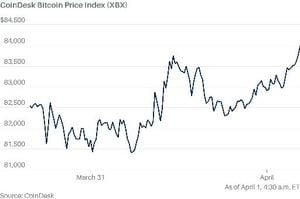Marine Le Pen, the leader of the National Rally (RN), is bracing for a pivotal moment in her political career as she awaits a court decision that could lead to her disqualification from holding office. On March 31, 2025, the Paris correctional court will announce its verdict in the case concerning the European parliamentary assistants of the former National Front (FN). Le Pen faces the possibility of a five-year ineligibility sentence, which could be enforced immediately, depending on the judges' ruling.
In the days leading up to the judgment, Le Pen has been attempting to maintain a sense of calm. Speaking to La Tribune Dimanche, she stated, "I read here and there that we would be nervous. Personally, I am not, but I understand that one could be: with provisional execution, the judges have a right of life or death over our movement. But I do not believe they will go that far." This comment highlights her awareness of the stakes involved, yet she insists on projecting confidence.
Le Pen has not scheduled any meetings with her cabinet over the weekend, indicating a desire to avoid unnecessary strategizing ahead of a decision that could significantly impact her future. "Too many judicial scenarios are possible on Monday," she remarked, suggesting that preparing specific talking points would be futile.
Internally, there is some concern about her lack of consultation with party members regarding such a crucial event. Some party officials have expressed frustration, with one stating, "If they do not know what to say, they might as well go plant strawberries." This reflects a tension within the party as they navigate the uncertain political landscape.
The anticipation surrounding the ruling is palpable, especially among Le Pen's political rivals. The presidential camp is reportedly anxious about the potential ramifications of a guilty verdict. Some officials are speculating about whether such a decision could lead to a motion of censure against the government. A leader from the MoDem party noted, "It would be too crude to provoke a motion of censure, but it could destabilize things."">
In November 2024, the severe requisitions against Le Pen preceded the political downfall of Michel Barnier, raising concerns that the RN's current position could similarly lead to significant political fallout. The RN has recently adopted a more hardline stance, opposing unpopular government measures, which some see as a tactical maneuver to provoke political crises for their gain.
Le Pen's criticism of François Bayrou, a prominent figure within the presidential camp, has further complicated the political dynamics. During a trip to Chad in mid-March, she remarked, "Bayrou is starting to annoy me," highlighting her disdain for the government's approach to the upcoming multi-year energy program, which allocates nearly 37 billion euros for connecting offshore wind farms. This program has become a point of contention, with Le Pen accusing the government of undermining the French nuclear sector.
As the trial date approaches, the political stakes are high. The potential for a guilty verdict against Le Pen could not only affect her political ambitions but also reshape the power dynamics within the French government. A member of the presidential camp expressed concerns, stating, "It could be a political earthquake. The trial of justice will take place in public opinion." This sentiment underscores the broader implications of the verdict, which transcends Le Pen's individual fate.
Gérald Darmanin, the Minister of Justice, previously expressed his disapproval of the notion that Le Pen might be barred from standing for election. He described it as "shocking" and cautioned against further widening the gap between the so-called elite and the majority of citizens. His comments reflect an ongoing debate about the independence of the judiciary and its role in politics.
Looking ahead, Le Pen has maintained that if she were to be barred from running for office with immediate effect, it would be a "deeply undemocratic" decision. She has indicated that she would appeal any such ruling, further emphasizing her commitment to contesting the legal challenges she faces.
In the context of these developments, the RN is preparing for a potentially tumultuous period. The upcoming court decision could either solidify Le Pen's position as a key player in French politics or significantly hinder her ambitions for the future. With the trial set to unfold, all eyes will be on the Paris correctional court as it delivers its verdict.
As the political landscape shifts, the RN's strategy and Le Pen's response will be closely scrutinized. The outcome of this trial could redefine the party's trajectory and influence the broader political discourse in France. As Le Pen herself noted, the judges hold significant power over her movement's future, making the upcoming decision all the more critical.
In conclusion, the decision on March 31 will not only affect Marine Le Pen's political career but will also resonate throughout the French political system, potentially triggering significant shifts in power dynamics and public sentiment.





